Having a will prepared is a critical step for anyone to take. A will allows you to specify how your assets should be divided and distributed after you pass away. While it can be tough to face one’s mortality and plan a future without you, a will can help your loved ones navigate the uncertainties of your passing and avoid legal troubles.
Unfortunately, sometimes a poorly-crafted will can cause as much trouble as having none. It’s best to craft your will with the aid of a wills and estates lawyer in Abbotsford to avoid complications. In the spirit of education, here are three of the most common mistakes people commit when making a will.
Not Naming Backup Executors
A backup executor is someone you designate to take over the role of executor if your primary executor is unable or unwilling to fulfill the role. This can be a direct or extended family member, friend, or professional such as an accountant or a wills and estates lawyer. The backup executor will have the same duties and responsibilities as your primary executor, so you must choose someone you trust to fulfill your wishes.
When naming a backup executor, you should designate someone willing and able to take on the role. You should also ensure that your choice is not legally disqualified from serving as an executor. For example, if you name your spouse as your primary executor, you may not be able to name them as your backup executor if they are not legally allowed to serve as an executor in your state.
A backup executor is essential if your first-named executor passes away or cannot take on the role. If you don’t list a backup executor in the will, family members or creditors can apply to the court to become your executor. However, this can lead to conflict if disagreements arise over who should take the role.
Not Naming Backup Beneficiaries
When drafting a will, the writer should consider the possibility of a beneficiary passing away before them and include provisions for a substitute beneficiary. You can do this by giving the executor of the will the power to designate a substitute beneficiary or by specifying a substitute beneficiary in the will itself.
It’s essential to be aware that if the substitute beneficiary passes away before the will-maker, the inheritance or benefit would once again become part of the overall estate and be divided among the other beneficiaries.
Not Distributing Personal Possessions
A person’s items aren’t always the most valuable, but they often have sentimental value. If something you want to make sure goes to a particular beneficiary, ensure that it is specified in your will.
On the other hand, if you only have a preference but are not overly concerned with who receives the item, you can create a supplemental document that is not legally binding. This memo should provide instructions to the executor of your will regarding distributing personal items according to your wishes.
A person’s estate generally does not include bank accounts or land but may include vehicles. The executor’s job is to distribute the remaining assets. Money gained from selling these items will be included in the estate.
Conclusion
Many people dislike drafting a will because they fear confronting mortality. However, without a will, the government may decide how to divide your assets, which may not align with your desires. A will is also vital in minimizing the potential for family disputes over your estate. Taking the time to create a will can provide peace of mind and ensure your wishes are respected.
Pathfinder Law’s wills and estates lawyers in Abbotsford are ready to provide sound legal advice. We know your situation is unique, and we are ready to listen. Contact us today to learn more.


